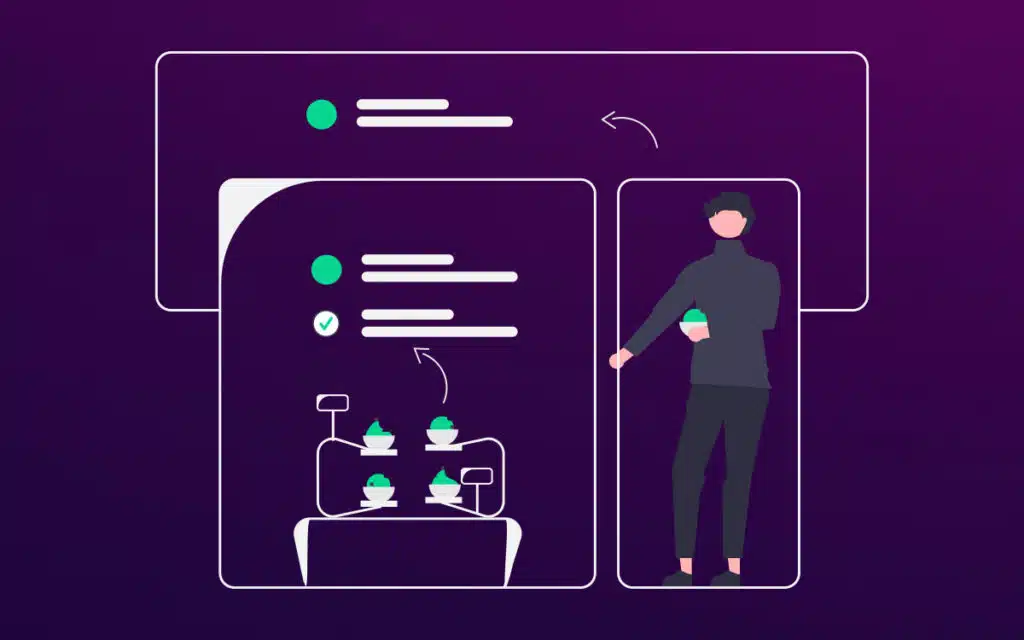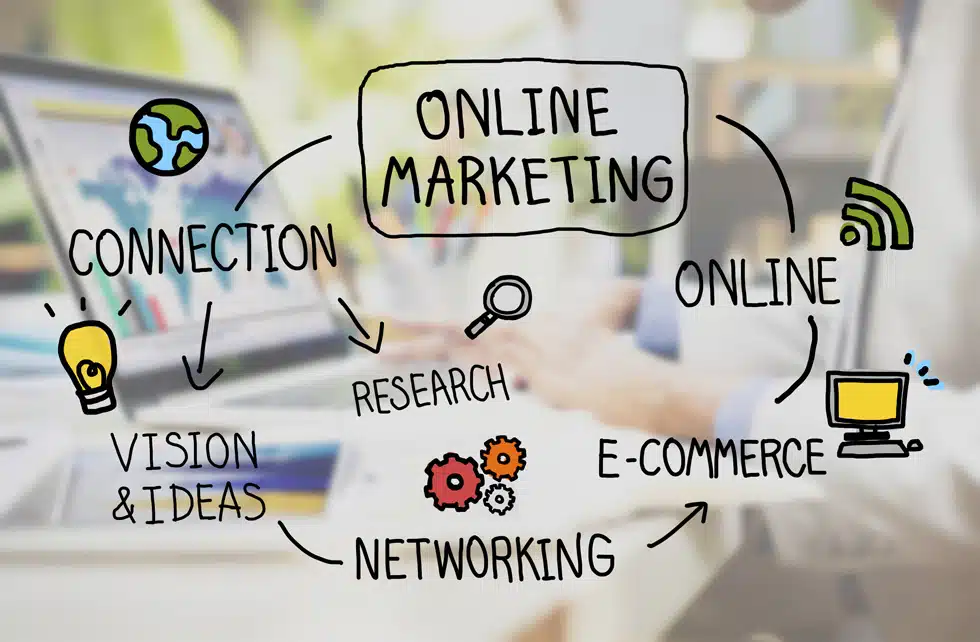The World Wide Web, more commonly known as the Web, has revolutionised the way businesses operate in the digital age. As technology continues to advance, the impact of the web on business is becoming increasingly profound. In this comprehensive 1200-word blog post, we will explore the various dimensions of the impact of the web on business. From e-commerce and online marketing to customer engagement and data analytics, we will delve deep into how the web has transformed the modern business landscape.

The Impact of the Web on Business – Table of Contents:
I. E-Commerce: A Digital Marketplace
A. The Rise of Online Retail
B. E-Commerce Trends
C. The Impact on Traditional Retail
D. Challenges and Opportunities
II. Online Marketing: From Traditional to Digital
A. Digital Marketing Strategies
B. The Role of Social Media
C. Content Marketing
D. SEO and SEM
III. Customer Engagement: The Web’s Social Aspect
A. Social Media and Customer Interaction
B. Online Reviews and Reputation Management
C. Personalisation
IV. Big Data and Analytics
A. Web Data Collection
B. Utilising Data for Business Insights
C. Predictive Analytics
V. Remote Work and Collaboration
A. The Web as a Remote Work Enabler
B. Collaboration Tools and Technologies
C. Cybersecurity Concerns
VI. The Future of Business on the Web
A. Emerging Technologies
B. Web 3.0 and Beyond
C. Challenges and Preparing for the Future
I. E-Commerce: A Digital Marketplace
A. The Rise of Online Retail
E-commerce has become the cornerstone of modern business. The web has allowed businesses to expand beyond brick-and-mortar establishments into the digital realm. Online retail offers unparalleled convenience for consumers, allowing them to shop 24/7 from the comfort of their homes. E-commerce has given rise to giants like Amazon and Alibaba, fundamentally changing the retail landscape.
B. E-Commerce Trends
E-commerce is dynamic and evolving, driven by trends like mobile shopping, virtual reality stores, and subscription services. These innovations are pivotal in shaping the future of online shopping and customer experiences. Mobile shopping prioritises convenience and accessibility, while virtual reality stores offer immersive shopping experiences. Subscription services revolutionise consumer-product interactions, opening doors for lasting customer relationships. These dynamic trends shape the e-commerce landscape, offering exciting possibilities.
C. The Impact on Traditional Retail
Traditional retail has had to adapt or perish. The web’s influence has challenged traditional retailers to adopt an omnichannel approach to stay competitive. Many have integrated online and offline sales channels to cater to a wider customer base. Others have embraced web technology to enhance the in-store experience.
D. Challenges and Opportunities
While e-commerce has opened new doors, it has also brought its share of challenges. Security concerns, competition, and the need for optimised supply chains are just a few of the issues businesses face. However, the web also offers opportunities for global expansion and cost-effective operations.
II. Online Marketing: From Traditional to Digital
A. Digital Marketing Strategies
Marketing has shifted from traditional to dynamic digital strategies. Today, businesses use web-based advertising, content marketing, and email campaigns to directly connect with target audiences. The digital landscape offers opportunities for engagement, brand recognition, and loyalty building. What sets these strategies apart is their precision in reaching the right audience through data analytics and tailored content. Real-time monitoring allows for swift adaptation in this dynamic digital arena. As traditional methods yield to the digital frontier, businesses navigate an ever-evolving landscape, achieving greater reach, engagement, and success.
B. The Role of Social Media
Social media has truly revolutionised business-customer interactions. Platforms like Facebook, Twitter, and Instagram connect companies with their customers, profoundly impacting business operations. Social media is now a pivotal arena for brand promotion and customer engagement, with marketing and advertising being essential for success. These tools allow real-time message tailoring and reaching diverse audiences. In essence, social media is a dynamic stage for crafting and sharing stories, fostering trust and lasting customer relationships. It’s a game-changer in the digital age, offering new dimensions of reach and influence.
C. Content Marketing
In the vast web kingdom, high-quality content rules. Content marketing, focusing on creating valuable and engaging content, is key. Through blog posts, videos, infographics, and podcasts, businesses connect with their audience, fostering trust. It’s about telling a resonating, educating, and entertaining story, not just conveying a message. The essence of content marketing is in consistently offering relevant, enriching, and relatable content. In the evolving web landscape, high-quality content is not just king; it’s the foundation for lasting digital success.
D. SEO and SEM
Search Engine Optimisation (SEO) and Search Engine Marketing (SEM) are critical for visibility on the web. These techniques ensure that your business appears in relevant search engine results. Successful SEO and SEM strategies can significantly impact a business’s online presence.

III. Customer Engagement: The Web’s Social Aspect
A. Social Media and Customer Interaction
Businesses now interact with customers in real time via social media. This creates an opportunity for direct communication, instant feedback, and issue resolution. Effective social media engagement enhances customer satisfaction and builds brand loyalty.
B. Online Reviews and Reputation Management
Online reviews have become a primary source of information for consumers. Managing your online reputation is crucial for business success. Positive reviews can boost sales, while negative ones can be detrimental. Effective reputation management is essential.
C. Personalisation
The web allows businesses to collect data on customer behaviour and preferences. Using this data, businesses can offer personalised experiences and product recommendations. Personalisation can lead to higher customer retention and increased sales.

IV. Big Data and Analytics
A. Web Data Collection
The web generates an enormous amount of data daily. Businesses can collect and analyse this data to gain valuable insights into customer behaviour, market trends, and operational efficiency. Data collection tools and techniques are integral to this process.
B. Utilising Data for Business Insights
Big data analytics can provide businesses with actionable insights. These insights can drive decision-making, optimise marketing campaigns, and improve customer experiences. Data-driven decision-making is a key competitive advantage in the digital age.
C. Predictive Analytics
Predictive analytics uses historical data and statistical algorithms to forecast future trends and behaviours. This tool can help businesses anticipate customer needs, manage inventory efficiently, and make informed strategic decisions.
V. Remote Work and Collaboration
A. The Web as a Remote Work Enabler
The COVID-19 pandemic accelerated the adoption of remote work. The web has become the lifeline for businesses, allowing employees to work from anywhere. Video conferencing, cloud collaboration tools, and project management software have become indispensable.
B. Collaboration Tools and Technologies
Businesses are increasingly relying on web-based collaboration tools to connect teams spread across the globe. Tools like Slack, Microsoft Teams, and Zoom have transformed the way employees collaborate, making businesses more agile and adaptable.
C. Cybersecurity Concerns
The increased reliance on the web for remote work has also raised cybersecurity concerns. Businesses must invest in robust cybersecurity measures to protect sensitive data and prevent breaches.
VI. The Future of Business on the Web
A. Emerging Technologies
Technological advancements such as artificial intelligence, blockchain, and the Internet of Things continue to shape the business landscape. These technologies hold the potential to further revolutionise industries and business operations.
B. Web 3.0 and Beyond
The evolution of the web never stops. Web 3.0, often referred to as the Semantic Web, is expected to usher in a new era of interconnected data and AI-driven services. Businesses need to prepare for these changes to stay competitive.
C. Challenges and Preparing for the Future
The future of business on the web will present both challenges and opportunities. Staying ahead requires adapting to technological shifts, ensuring data security, and embracing sustainability and social responsibility.
The Impact of the Web on Business – Conclusion
The impact of the web on business is profound and multi-faceted. From e-commerce and online marketing to customer engagement and data analytics, the web has reshaped the way businesses operate. As businesses navigate the evolving digital landscape, those who harness the power of the web and adapt to its changes will thrive in the competitive market of the future. The web is not just a tool for business; it’s a cornerstone of modern commerce and a driving force of innovation.
The impact of the web on business has been profound and far-reaching, touching nearly every aspect of modern commerce. With the advent of the internet and the subsequent rise of e-commerce, the impact of the web on business is undeniable. It has revolutionised the way companies operate, promoting global reach, and enabling them to engage with a vast and diverse audience.
The impact of the web on business is most evident in the e-commerce sector, where online sales have witnessed exponential growth. Furthermore, the impact of the web on business has accelerated information sharing, enhanced collaboration, and spurred innovation. In a world characterised by constant change, adaptation to the impact of the web on business is crucial for companies striving to remain competitive and relevant.
If you are in search of a reliable and results-driven web agency to assist you in not only launching your online presence but also in expanding your existing digital footprint, look no further than Octave Agency. We stand as your steadfast and expert partner throughout your entire digital journey.
With a proven track record of delivering effective web solutions, our dedicated team is here to guide you through the complex digital landscape. We invite you to explore our Contact Us page to initiate a meaningful and productive conversation with us today. By taking this step, you can set in motion the collaborative process that will shape and drive your business’s digital success journey. Your goals become our goals, and together, we can achieve new heights in the online realm



